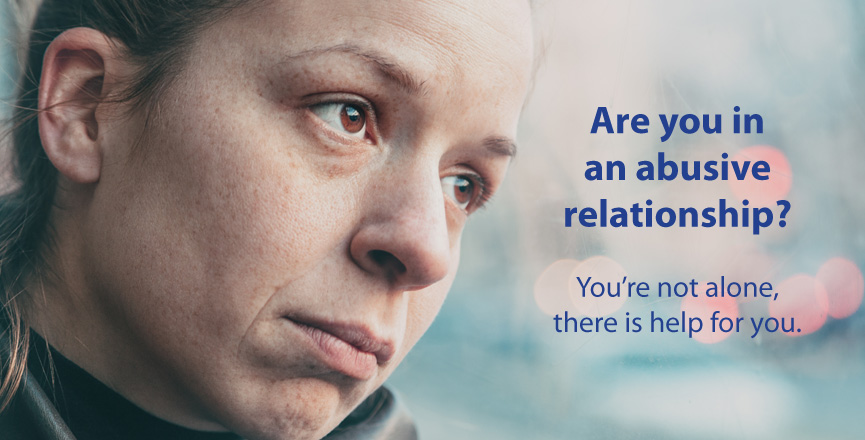
Home » Community » Outreach » Domestic Violence Help
Domestic Violence Help
Domestic Violence
"Violence against women,
inside or outside the home,
is never justified.
Violence in any form-physical,
sexual, psychological, or verbal is sinful;
often, it is a crime as well"
—U.S Catholic Bishops, When I Call for Help, 2002
Know the Facts
Child abuse and domestic violence often occur within the same family
Boys who witness domestic violence are twice as likely to become abusers
85% of victims of domestic violence are female
Domestic violence is the leading cause of injury to women in the United States
1 in 4 women and 1 in 7 men will be victims of domestic violence or abuse in their lifetime
Signs of an Abusive Relationship
Does your partner…
Call you names or put you down?
Shove, slap or hit you?
Intimidate and threaten to hurt you or someone you love?
Threaten to hurt themselves if they don’t get what they want?
Try to control what you do and who you see?
Isolate you from your family and friends?
Pressure or force you into unwanted sex?
Control your access to money?
Make you account for every minute of your time?
Stalk you, including calling you constantly or following you?
If you answered yes to any of the questions above, we urge you to seek help.
Where to get help in New Hampshire
Statewide Hotline: (866) 644-3574
Call 9-1-1 if you are in immediate danger
Resources for Parishes

Get Help Posters
Download these poster for hanging up in bathrooms so victims can discreetly get the information they need to get help.
Two flyers are available:
Addressing domestic violence in the Sacrament of Reconciliation (USCCB)
Obtenga los Carteles Informativos
Descargue estos carteles para ponerlos a la vista de todos, en los sanitarios y salones, para que las victimas puedan discretamente obtener la información necesaria y conseguir ayuda.
Dos Carteles estan disponibles :
Healthy vs. Unhealthy Teen Dating Relationships
Know the Facts
1 in 4 teens in a dating relationship say they have been called names, harassed or put down by their boyfriend or girlfriend in person or electronically
An unhealthy relationship has an imbalance in which one person tries to gain power and control over the other
A healthy relationship includes mutual respect and kindness
 Learn the 14 Signs of a Healthy Relationship, Download the Infographic
Learn the 14 Signs of a Healthy Relationship, Download the Infographic
Where to Get Help
Teens who are experiencing harassment or violence in their dating relationship should find a trusted adult to confide in, such as a parent, guidance counselor, teacher, pastor, etc. In an emergency, call 9-1-1.
Teens, if your friend comes to you and confides that they are in an abusive relationship of any kind, please help them by talking with a trusted adult who can assist.
Statewide Violence Hotline: (866) 644-357
Resources for Parishes
Circles of Care Relationships Lesson for Teens

Maltreatment of Elderly and Vulnerable Adults
Know the Facts
In New Hampshire, elder abuse is defined by law as any action or omission that results, or could result, in harm to a vulnerable adult
Church law defines vulnerable adults as those “habitually lacking the use of reason”
Vulnerable adult maltreatment includes physical abuse, sexual abuse, emotional/ psychological abuse, neglect, abandonment, financial exploitation, or self-neglect
Perpetrators of elder adult maltreatment are most often family members
Where to Get Help in New Hampshire
If you suspect that an elderly or vulnerable adult is being mistreated, NH law requires that you report your concerns to the Bureau of Adult and Elderly Services (BEAS)
at (603) 271-7014 or (800) 949-0470
Adults who are age 60 or older, or incapacitated, may contact the BEAS to access services
Resources for Parishes: Elder Abuse Brochure

